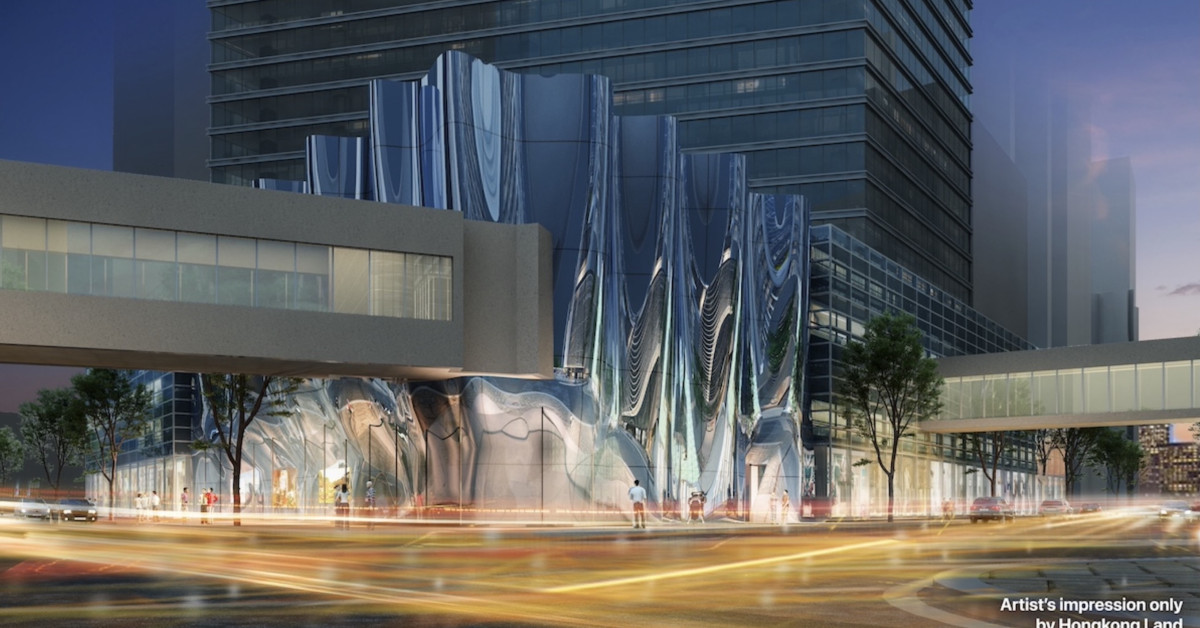Hongkong Land’s new strategy is like CapitaLand’s
Hongkong Land announced its new strategy on Oct 29 release, following its long-awaited strategic review initiated by Michael Smith, the group CEO appointed in April. A couple of surprises were in store for investors. For one, Hongkong Land announced a few numerical targets for 2035, which imply a 5.9% CAGR in ebit and dividends per share (DPS) and an 8.7% CAGR in assets under management (AUM).
The normally ultra-conservative property arm of the Jardine Group, which focused on share buybacks to create value in the past four years — bought back more than US$627 million ($830.1 million) of shares with little to show for it because of an impairment in China — announced dividend targets. Among its strategies is its own version of a model CapitaLand, GLP Capital, ESR, Goodman and the like have adopted in years gone by.
Under the new strategy, the group will no longer focus on investing in the build-to-sell segment across Asia. Instead, the group is expected to begin recycling capital from the segment into new integrated commercial property opportunities as it completes all existing projects.
Read also: Hongkong Land takes writedown on office properties, incurs US$582 million loss for FY2023
Advertisement
Advertisement
According to the group, the new strategy aims to “reinforce Hongkong Land’s core capabilities, generate growth in long-term recurring income and deliver superior returns to shareholders”. It also says key elements under the new strategy, which is expected to take several months to implement, include expanding its investment properties business in Asian gateway cities through developing, owning or managing ultra-premium mixed-use projects to attract multinational regional offices and financial intermediaries.
Additionally, the group aims to focus on strengthening strategic partnerships to support its expansion. The group is expected to extend its collaboration with Mandarin Oriental Hotel Group and further collaborate with global leaders in financial services and luxury goods from among its more than 2,500 tenants.
Smith says: “Building on our 135-year heritage of innovation, exceptional hospitality and longstanding partnerships, our ambition is to become the leader in creating experience-led city centres in major Asian gateway cities that reshape how people live and work.”
He adds: “By focusing on our competitive strengths and deepening our strategic partnerships with Mandarin Oriental Hotel Group and our key office and luxury tenants, we expect to accelerate growth and unlock value for generations.”
“The company kept its DPS flat for the past six years without a concrete dividend policy, and thus we view the new commitment to deliver a mid-single-digit growth in annual DPS as a positive move, especially when most peers are cutting dividend or (at best) keeping DPS flat. We expect the payout ratio to be at 80-90% in FY2024-2026,” says an update by JP Morgan.
It believes that the long-term investment property growth plan will make the DPS commitment feasible. “Separately, up to 20% of capital recycling proceeds (US$2 billion) may be spent on share buybacks, which is equivalent to 23% of its current market capitalisation. Hongkong Land was active in share buyback in 2021-2023 and spent US$627 million,” JP Morgan adds.
Read also: Link REIT appoints former BlackRock Asia Pacific real estate head John Saunders group CIO
Advertisement
Advertisement
The new strategy isn’t that different from the old one as development, particularly residential development in China, has come to a virtual halt. Instead, Hongkong Land will continue to focus on developing ultra-premium commercial properties in Asia’s gateway cities.
“We think this strategy is in line with our expectations (and will, in fact, happen naturally anyway in today’s environment), as Hongkong Land has long been positioned as a commercial landlord in Hong Kong and top-tier cities in Mainland China, with development property accounting for only 17% of its gross asset value,” JP Morgan says.
A new investment team will be established to source new investment property investments and identify third-party capital, with the aim of expanding AUM from US$40 billion to US$100 billion by 2035. Hongkong Land also plans to recycle assets (US$6 billion from development property and US$4 billion from selected investment properties over the next 10 years) into REITs and other third-party vehicles.
“While the direction is generally positive, we believe execution might face some hurdles. As evidenced by the slow progress in Link REIT’s similar strategy (Link 3.0) since 2023, sourcing value-accretive deals is challenging,” JP Morgan says.
Hongkong Land is valuing its investment portfolio at an implied capitalisation rate of 4.3%. Keppel REIT’s FY2023 results valued its one-third stake in Marina Bay Financial Centre at a 3.5% capitalisation rate and One Raffles Quay at 3.15%. This would make it quite challenging for Hongkong Land to “REIT” these properties.
